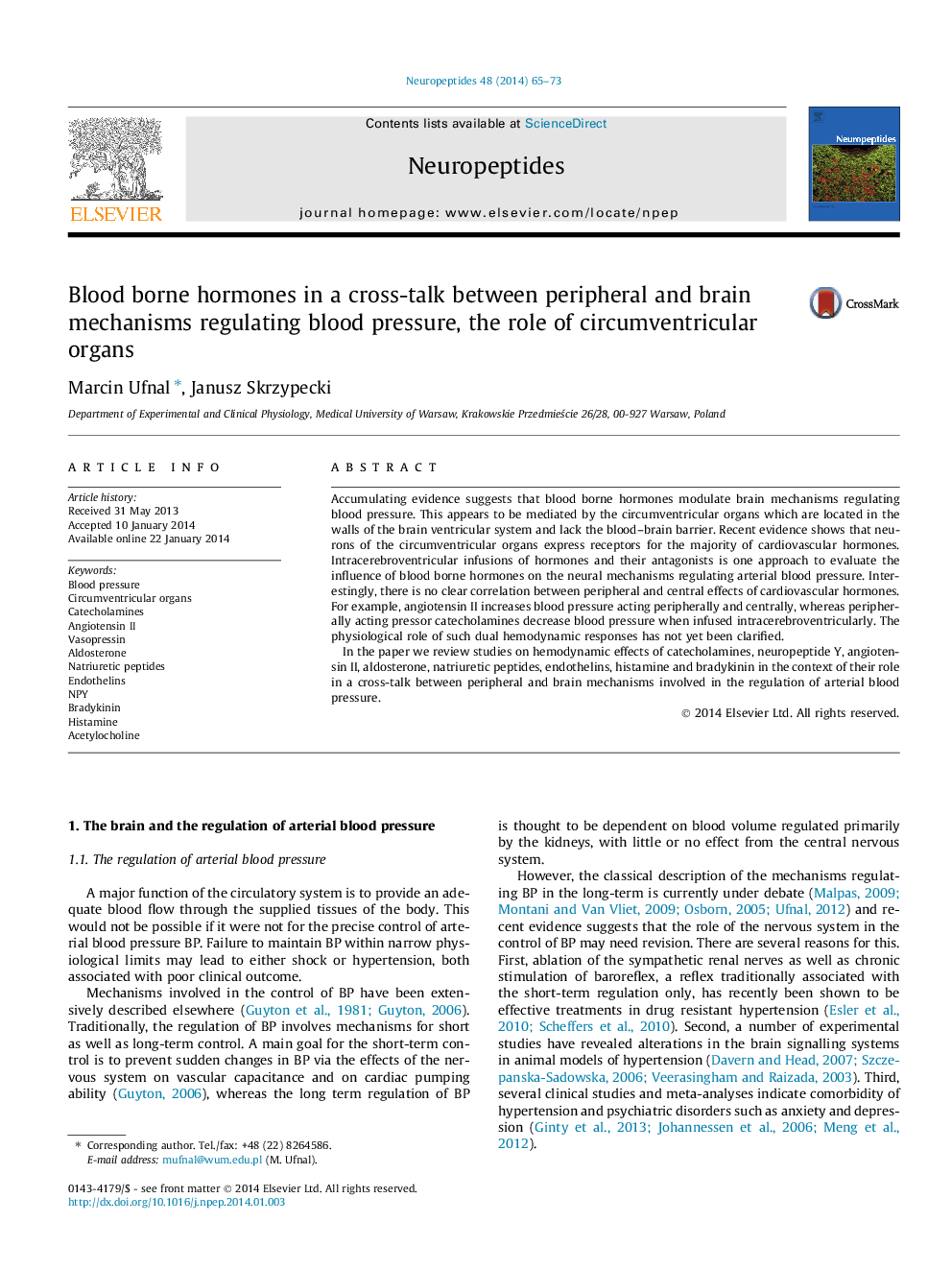| Article ID | Journal | Published Year | Pages | File Type |
|---|---|---|---|---|
| 2808078 | Neuropeptides | 2014 | 9 Pages |
Accumulating evidence suggests that blood borne hormones modulate brain mechanisms regulating blood pressure. This appears to be mediated by the circumventricular organs which are located in the walls of the brain ventricular system and lack the blood–brain barrier. Recent evidence shows that neurons of the circumventricular organs express receptors for the majority of cardiovascular hormones. Intracerebroventricular infusions of hormones and their antagonists is one approach to evaluate the influence of blood borne hormones on the neural mechanisms regulating arterial blood pressure. Interestingly, there is no clear correlation between peripheral and central effects of cardiovascular hormones. For example, angiotensin II increases blood pressure acting peripherally and centrally, whereas peripherally acting pressor catecholamines decrease blood pressure when infused intracerebroventricularly. The physiological role of such dual hemodynamic responses has not yet been clarified.In the paper we review studies on hemodynamic effects of catecholamines, neuropeptide Y, angiotensin II, aldosterone, natriuretic peptides, endothelins, histamine and bradykinin in the context of their role in a cross-talk between peripheral and brain mechanisms involved in the regulation of arterial blood pressure.
